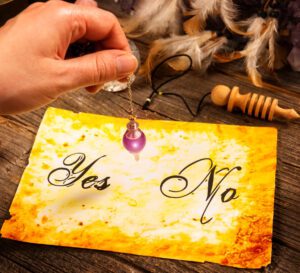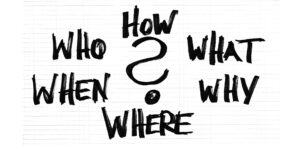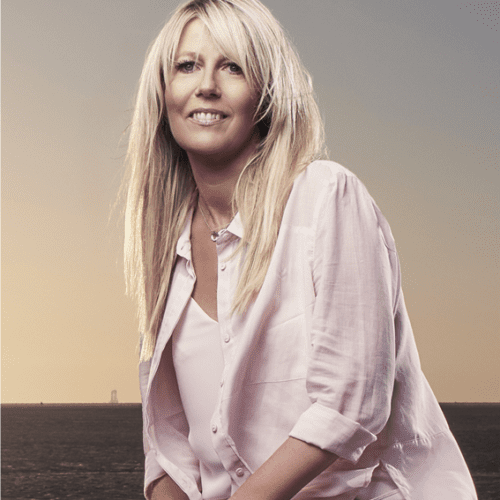
Dowsing is a very unusual but useful life skill; you don’t have to have a ‘special ability’ to be able to dowse, anyone can learn how to do it with training. Once mastered, you can use it for your own benefit and for the benefit of your family and friends.
Dowsing can be used for a multitude of things, and you can use a variety of different dowsing tools. I love using Dowsing Rods, but I do also use a Pendulum; and now that I am an experienced dowser, I can do Deviceless and Remote Dowsing too. If you don’t own a set of Dowsing Rods or a Pendulum to experiment with, you can play around by tying some string to a Yale Key as this will work too.
PROTECTION, DOWSING STATE & ETHICS
Before you dowse it is so important that you protect yourself, you want to ensure you are protected from any negative energies or attachments. Once you are protected you should then put yourself into the dowsing state to ensure you are connected.
You should also ALWAYS follow the correct dowsing ethics. E.g. You should ‘always’ ask permission to use whatever dowsing tool you have chosen to use. If you get a ‘no’ then do not dowse and try again another time.
For more information on how to protect yourself, the dowsing state, and the ethics of dowsing, please refer to the free information in the blog section on my website.
PROGRAMMING YOUR PENDULUM
You can program your pendulum to answer ‘yes’ by it swinging back and forth (a nodding motion). A ‘no’ response can be a left-to-right swinging motion OR you can train your pendulum to spin clockwise for a ‘yes’ answer and anti-clockwise for a ‘no’ answer. There is no right or wrong way, but whichever way you decide stick with it.
DOWSING EXAMPLES
My ‘specialty’ is environmental dowsing which involves clearing negative energies from homes, buildings, or land, but I also teach pendulum dowsing too.
Here are some examples of things you can dowse but the list is endless:
- Finding lost objects.
- Finding underground water, pipes, cables.
- Measure EMF effects in your home.
- What is causing a leak?
- What movie should I watch?
- Is this food (replace with food name) beneficial to me?
- Is this supplement (replace with supplement name) beneficial to me?
- What is the best restaurant to eat out at?
- What should I select from the menu? Should I drink alcohol?
- Do I need to drink more water?
- What builder/electrician/plumber/decorator should I use?
- What gift should I buy for my friend? Will they like that gift?
- Where should I go on holiday? What hotel should I choose?
- Will I meet a new partner soon?
- How compatible am I with them?
- Are they trustworthy?
- Will I marry them?
- Will it rain today? Will it be sunny today?
- Should I move to a new house? Should I rent? Should I buy?
- Which house should I buy? What area should I move too?
- Should I apply for the new job vacancy? Will I enjoy it?
- Will I receive a promotion?
- Will I get a pay rise?
- When should I launch my new business/product?
You can also dowse on health & financial issues but until you are an experienced dowser, it is best to avoid these topics.

WARNING
Never make an important decision from your dowsing answers until you become a proficient dowser, this takes training and a lot of practice. Just for now use your dowsing knowledge as a bit of fun and experiment with your topics and questions. If you are fascinated by dowsing and really enjoy it, you may want to expand your knowledge with some training. The more training you receive and the more you practice, the more accurate you will become.
DETACH YOURSELF FROM THE QUESTIONS
The secret to a good dowser is asking the right question and being detached from the answer. If you can do this, with practice you will become an accurate dowser.
Many years ago, when I first started to learn how to dowse, one of my best friends applied for a new job which she really wanted. She asked me to dowse on the outcome. I asked the question using my pendulum, ‘Will Jane get the teaching job she has applied for?’ I was delighted when I got a ‘yes’ answer. I couldn’t wait to tell her. But guess what…? She didn’t get the job and I felt so bad for building up her hopes. I now know through experience that I wanted her to get the job just as much as she did because I knew how much she wanted it. Without realizing it, I was too attached, and because of this, I was given an incorrect answer. Unless you can be sure that you’re unattached, don’t dowse the question.
ACCURACY
It is important to be aware of the detail in the questions you are asking in order to be confident in the accuracy of your answers. I will expand on this topic in next month’s article.



